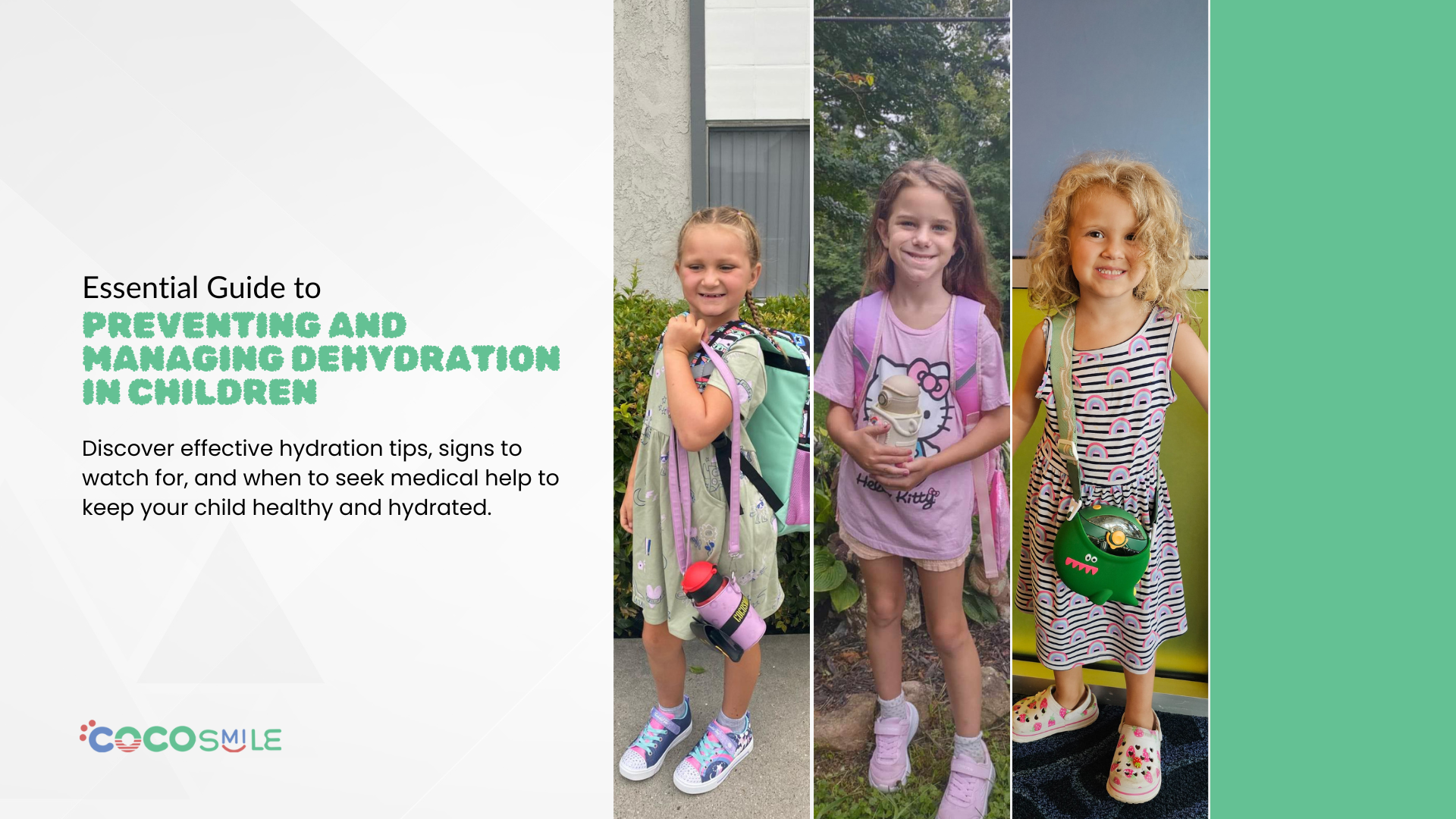Kickstart Your Kids’ Health with Fun and Hydration!
Ensuring your children stay active and hydrated is vital for their overall well-being. Proper hydration supports essential body functions, while physical activities boost both physical and mental health. As parents, it's crucial to weave these healthy habits into your child’s daily routine, especially during the scorching summer months.
This article provides:
- Practical tips to keep your kids moving
- Fun ideas to encourage regular hydration
- Strategies to integrate these habits into daily routines
Understanding Hydration for Kids
Kids' bodies are 60-70% water, making hydration vital for their development. Water regulates body temperature, supports digestion, removes waste, and lubricates joints. Being well-hydrated also improves mood, memory, and attention.
Daily Water Intake Recommendations
- 1-3 years: Approximately 4 cups of hydrating liquids per day.
- 4-8 years: Around 5 cups daily.
- 9+ years: About 7-8 cups daily. These needs vary based on age, weight, and activity level. Consult your pediatrician for personalized advice.
Fun Ways to Encourage Water Intake
Making hydration fun can turn drinking water from a chore into a delightful activity for kids. Here are some engaging ideas to boost their water intake:
1. Creative Water Bottles
Decorate plain water bottles with waterproof stickers, markers, and decals. Using fun, reusable straws adds excitement. Cocosmile cups can also make drinking water more appealing.
Flavorful Hydration Options
- Homemade Flavored Waters: Add citrus, berries, or herbs to water.
- Low-Sugar Options: Try Hint Water, seltzer, or Honest Kids® juice pouches.
- Infused Water: Use fruits and herbs to enhance flavor without added sugar.
2. Hydrating Snacks and Meals
Incorporating water-rich foods into your child's diet is a smart way to boost hydration while providing essential nutrients. These snacks and meals not only help with hydration but also support overall health.
Water-Rich Foods
Include foods like watermelon, cucumbers, strawberries, tomatoes, and zucchini in daily snacks and meals. These foods provide essential vitamins and hydration.
Homemade Hydrating Treats
Make homemade popsicles using water, fresh fruit, and a bit of no-sugar-added juice. Blended fruit and yogurt also make refreshing and hydrating snacks.
3. Keeping Kids Active
Keeping kids active is crucial for their overall health and well-being. Physical activity helps regulate body temperature, improves mood, and supports proper hydration. Here are some engaging ways to ensure your child stays active:
Daily Physical Activities
Integrate exercise into daily routines. Family-friendly activities and themed adventures make exercise fun.
Indoor and Outdoor Activities
Provide suggestions for both indoor and outdoor physical activities to keep kids active. Get creative with ways to keep kids moving during breaks.
Practical Tips for Parents
Making Hydration Fun starts with creating a reward system for drinking water. Use reusable water bottles with exciting designs to make hydration more appealing. Lead by example—drink water yourself and stay active to set a positive example for your kids. Preparing for Outings means always packing water bottles for trips, car rides, and outdoor activities. Keep bottles in the fridge and car for easy access to ensure your child stays hydrated on the go.
Avoiding Sugary Drinks
Avoiding Sugary Drinks is vital for maintaining your child’s health. Sugary beverages like soda, fruit drinks, and sports drinks can lead to excessive calorie intake, weight gain, and dental problems. They also reduce the desire to drink water, which is essential for proper hydration.
Drinks to Avoid
- Sugary Beverages: Avoid sodas, sports drinks, and juice cocktails.
- Juice: Limit even 100% juice due to its high sugar content.
- Flavored Milk: Avoid flavored milk with added sugars.
- Artificially-Sweetened Drinks: Avoid these due to potential health risks.
Recognizing and Preventing Dehydration
Recognizing and Preventing Dehydration is crucial to keep your child healthy. Dehydration occurs when the body loses more fluids than it takes in, which can be harmful.
Signs of Dehydration in Kids
- Infants: Fewer wet diapers, sunken soft spot, no tears when crying.
- Older Children: Dry lips, less urination, irritability.
- Teens: Lightheadedness, cramps, headache, rapid pulse.
Tips for Preventing Dehydration
To prevent dehydration, ensure your child drinks water regularly, especially during hot weather and after physical activities. Use reusable water bottles to make drinking water a fun habit. Encourage hydration through water-rich foods and creative drinks. By staying vigilant and proactive, you can help your child maintain optimal hydration and overall well-being.
Conclusion
Maintaining hydration and an active lifestyle is essential for children's health and well-being. To ensure your kids stay hydrated and active, integrate these habits into their daily routines and lead by example. Use creative and engaging methods, such as Cocosmile cups and reusable water bottles, to make drinking water appealing. Encourage physical activity with fun and varied exercises, and make hydration part of their diet with water-rich foods and healthy snacks.
By incorporating these strategies, you help your children develop lifelong healthy habits. A proactive approach to hydration and activity not only supports their physical health but also enhances their mood, concentration, and overall quality of life. With a little effort and creativity, you'll still have habits that will benefit them throughout their lives, making health and wellness a natural part of their daily routine.
FAQs
Why is it important to keep kids hydrated throughout the day?
Kids lose more water through sweating and have higher hydration needs. Proper hydration supports body functions, cognitive performance, and prevents issues like fatigue and headaches.
How can I effectively increase my child’s daily water intake?
Make hydration fun with Cocosmile cups, infuse water with fruits, and set up a reward system. Model good hydration habits by drinking water yourself.
Why should sugary drinks be limited in a child’s diet?
Sugary drinks are high in empty calories and can lead to weight gain, dental issues, and chronic diseases. Limiting them supports a balanced diet and healthier hydration habits.
How can I recognize early signs of dehydration in my child and address them?
Recognizing early signs of dehydration involves looking for symptoms like dry lips, dark urine, and irritability. To address these signs, promptly offer your child water and encourage frequent sips. Ensure they have easy access to water throughout the day, especially during hot weather or after exercise.
Why is it beneficial to incorporate water-rich foods into my child’s diet?
Water-rich foods like cucumbers and watermelon aid hydration and provide essential nutrients. They integrate fluid intake into meals and snacks while offering additional health benefits.


